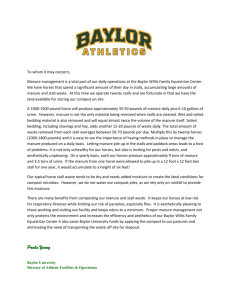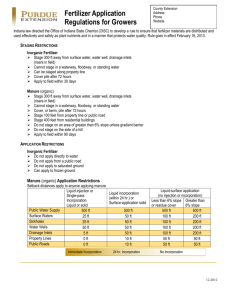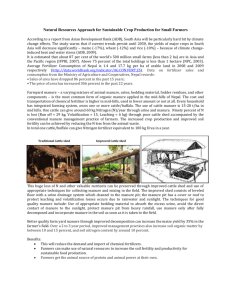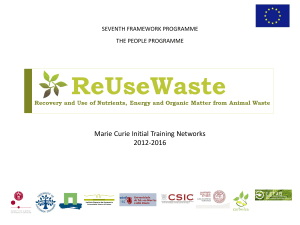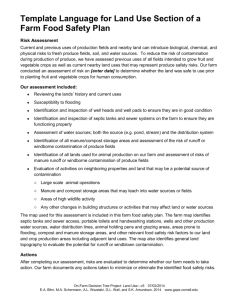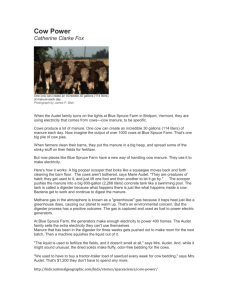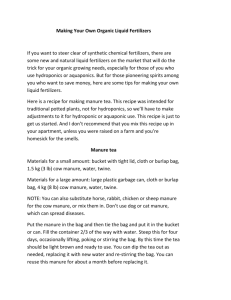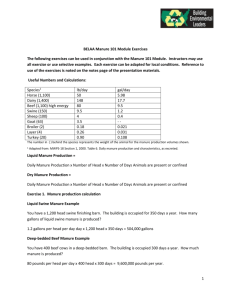Managing Manure in Winter - December 2015
advertisement
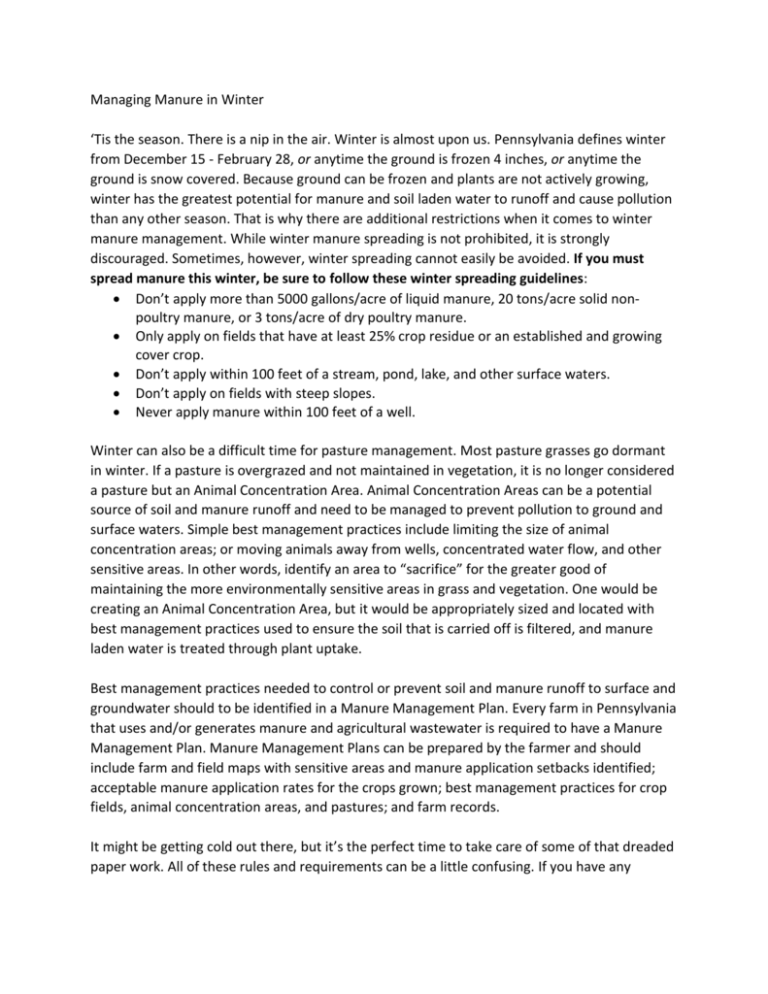
Managing Manure in Winter ‘Tis the season. There is a nip in the air. Winter is almost upon us. Pennsylvania defines winter from December 15 - February 28, or anytime the ground is frozen 4 inches, or anytime the ground is snow covered. Because ground can be frozen and plants are not actively growing, winter has the greatest potential for manure and soil laden water to runoff and cause pollution than any other season. That is why there are additional restrictions when it comes to winter manure management. While winter manure spreading is not prohibited, it is strongly discouraged. Sometimes, however, winter spreading cannot easily be avoided. If you must spread manure this winter, be sure to follow these winter spreading guidelines: Don’t apply more than 5000 gallons/acre of liquid manure, 20 tons/acre solid nonpoultry manure, or 3 tons/acre of dry poultry manure. Only apply on fields that have at least 25% crop residue or an established and growing cover crop. Don’t apply within 100 feet of a stream, pond, lake, and other surface waters. Don’t apply on fields with steep slopes. Never apply manure within 100 feet of a well. Winter can also be a difficult time for pasture management. Most pasture grasses go dormant in winter. If a pasture is overgrazed and not maintained in vegetation, it is no longer considered a pasture but an Animal Concentration Area. Animal Concentration Areas can be a potential source of soil and manure runoff and need to be managed to prevent pollution to ground and surface waters. Simple best management practices include limiting the size of animal concentration areas; or moving animals away from wells, concentrated water flow, and other sensitive areas. In other words, identify an area to “sacrifice” for the greater good of maintaining the more environmentally sensitive areas in grass and vegetation. One would be creating an Animal Concentration Area, but it would be appropriately sized and located with best management practices used to ensure the soil that is carried off is filtered, and manure laden water is treated through plant uptake. Best management practices needed to control or prevent soil and manure runoff to surface and groundwater should to be identified in a Manure Management Plan. Every farm in Pennsylvania that uses and/or generates manure and agricultural wastewater is required to have a Manure Management Plan. Manure Management Plans can be prepared by the farmer and should include farm and field maps with sensitive areas and manure application setbacks identified; acceptable manure application rates for the crops grown; best management practices for crop fields, animal concentration areas, and pastures; and farm records. It might be getting cold out there, but it’s the perfect time to take care of some of that dreaded paper work. All of these rules and requirements can be a little confusing. If you have any questions and need help with writing a Manure Management Plan, or just want to meet and learn more, please contact the Adams County Conservation District at 717-334-0636. Vy Trinh is the Nutrient Management Technician for the Adams County Conservation District, and a former board member of the Watershed Alliance of Adams County.


